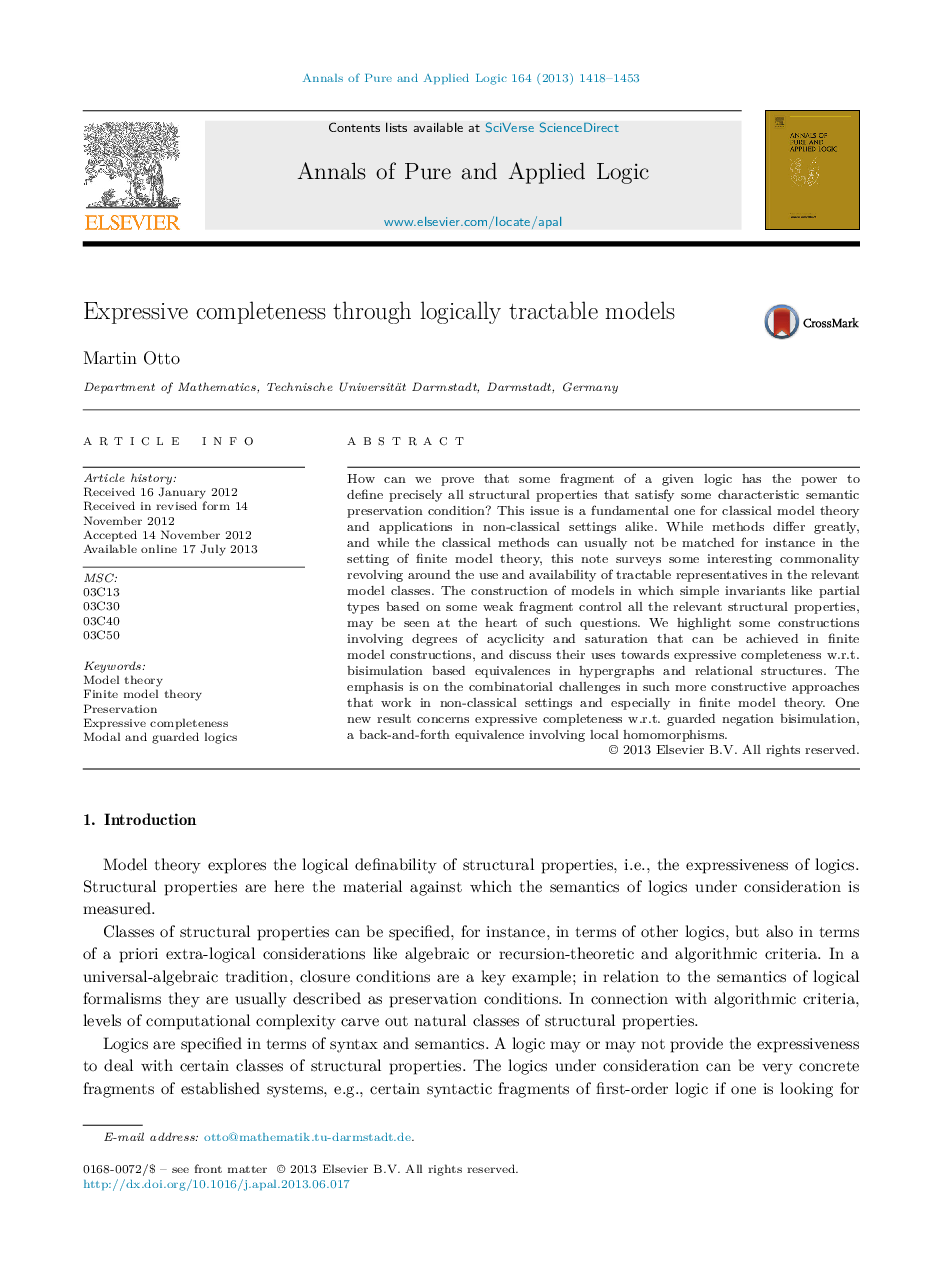| Article ID | Journal | Published Year | Pages | File Type |
|---|---|---|---|---|
| 4661800 | Annals of Pure and Applied Logic | 2013 | 36 Pages |
How can we prove that some fragment of a given logic has the power to define precisely all structural properties that satisfy some characteristic semantic preservation condition? This issue is a fundamental one for classical model theory and applications in non-classical settings alike. While methods differ greatly, and while the classical methods can usually not be matched for instance in the setting of finite model theory, this note surveys some interesting commonality revolving around the use and availability of tractable representatives in the relevant model classes. The construction of models in which simple invariants like partial types based on some weak fragment control all the relevant structural properties, may be seen at the heart of such questions. We highlight some constructions involving degrees of acyclicity and saturation that can be achieved in finite model constructions, and discuss their uses towards expressive completeness w.r.t. bisimulation based equivalences in hypergraphs and relational structures. The emphasis is on the combinatorial challenges in such more constructive approaches that work in non-classical settings and especially in finite model theory. One new result concerns expressive completeness w.r.t. guarded negation bisimulation, a back-and-forth equivalence involving local homomorphisms.
